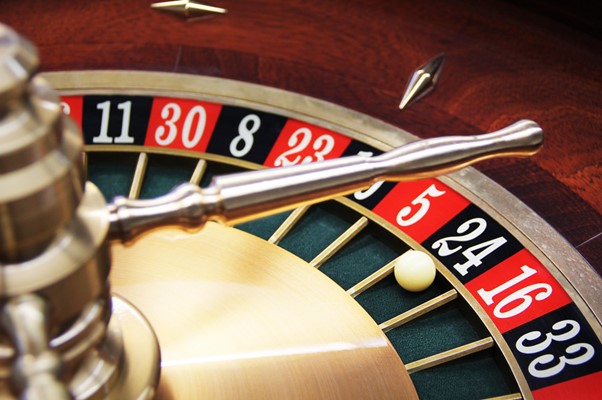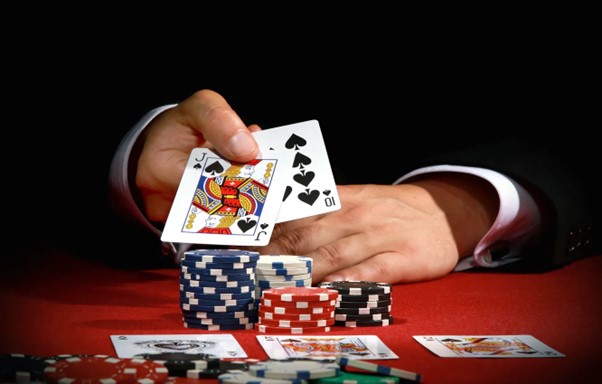The debate between luck and skill has been at the forefront of casino gaming for as long as gambling has existed. Whether you're playing in a physical casino or an online platform, every game you encounter can be categorized as either luck-based or skill-based. Understanding how to navigate this dynamic not only influences your gaming choices but also determines your long-term success and enjoyment.
Games of pure chance rely entirely on randomness, meaning the outcomes are impossible to predict or control. Common examples include slot machines, roulette, and lotteries, where players have no influence over the result, and the house always has a mathematical advantage. While these games might seem like easy ways to win quick money, it's important to approach them with the right mindset.
In games of chance, two critical concepts are the house edge and Return to Player (RTP) percentage. The house edge refers to the casino's built-in advantage, ensuring they make a profit over time. For instance, in American roulette, the house edge is approximately 5.26%. This means that, on average, for every $100 wagered, the player can expect to lose $5.26 in the long run.
On the other hand, RTP represents the percentage of total wagers that a slot or game will return to players over time. For example, a slot with an RTP of 96% will, on average, pay back $96 for every $100 wagered. Players looking for fast payout online casinos should consider games with higher RTP, as this can enhance their overall gaming experience. Understanding these factors helps players make informed choices about which games to play, knowing that pure chance limits their control over the outcome.

Because luck-based games operate on chance, it’s essential to manage expectations. Winning is always possible, but losing is more likely over time due to the house edge. That doesn't mean you can't have fun with these games. Many players are attracted to the fast-paced action, the allure of big jackpots, and the sheer thrill of gambling. Here are some tips for approaching games of pure chance:
In games of chance, your experience is about the ride, not just the destination. If you’re looking for a strategy-driven approach, then skill-based games might be more your style.
Skill-based games, unlike their luck-based counterparts, require players to apply strategies and decision-making abilities to influence the outcome. Poker and blackjack are classic examples where a player’s knowledge, experience, and judgment can shift the odds in their favor. These games reward practice and mastery, making them appealing to competitive players who enjoy using their intellect to improve their chances.
In poker, players face off against each other rather than the house, and winning depends largely on their ability to read opponents, make calculated decisions, and manage risks. Bluffing, hand-reading, and probability calculations are crucial in determining a player’s success. Although there’s an element of luck in the cards you’re dealt, skill plays a significant role in how those cards are played.
Blackjack, on the other hand, pits players against the dealer. The game involves a combination of luck (the cards dealt) and skill (knowing when to hit, stand, split, or double down). Players who use a basic strategy in blackjack can reduce the house edge to as low as 0.5%, which is one of the lowest in the casino world. This makes blackjack particularly attractive for players who want to minimize losses while maximizing their chances of winning.
Unlike games of chance, where outcomes are immediate and random, skill-based games allow for improvement over time. Many successful poker and blackjack players spend years studying strategies, probabilities, and psychology to gain an edge. If you're serious about winning, investing time in learning the game is essential. Here are a few ways to enhance your skills:
In skill-based games, the balance between luck and strategy is dynamic. While luck will always play a part, skilled players understand how to minimize randomness and maximize their chances of success.
Choosing between luck and skill-based games is more than just a question of odds; it’s also about aligning your choices with your personality and gaming goals. Some players thrive on the excitement of chance, while others prefer the intellectual challenge of strategy. Finding the right balance between these types of games can enhance your overall experience and long-term enjoyment.

The type of game you enjoy often reflects your personality. For example, if you're someone who enjoys quick bursts of excitement without the need for deep strategy, luck-based games like slots or roulette may appeal to you. On the other hand, if you're more analytical and enjoy testing your mental agility, poker or blackjack might be your go-to games.
Here’s a quick breakdown of personality types and their corresponding game preferences:
Personality Type | Preferred Game Type |
Thrill-Seeker | Slots, Roulette, Craps |
Strategist | Poker, Blackjack, Baccarat |
Casual Player | Bingo, Slot Machines |
Competitive Player | Poker, Blackjack |
Are you playing for fun, or are you looking to maximize your profits? Your goals also dictate the mix of games you should focus on. Players who seek entertainment and enjoyment without much effort may prefer luck-based games. Meanwhile, those aiming to minimize losses or consistently win will likely gravitate toward skill-based games, where they can hone their strategy over time.
A well-rounded approach might involve playing a mix of both game types to balance enjoyment and strategy. For example, you could start the night playing slots for fun, then move to a poker table when you’re ready for a more strategic challenge.
Balancing luck and skill in casino games is essential for enhancing both your enjoyment and success. Recognizing the difference between games of pure chance and those requiring skill allows you to make more informed decisions about where to spend your time and money. Games of chance offer fast-paced fun with the understanding that the house has the advantage, while skill-based games provide opportunities to improve over time, leading to potentially better outcomes.
By aligning your gaming choices with your personality and goals, you can create a more enjoyable and fulfilling experience. Whether you’re playing for excitement, social interaction, or intellectual challenge, finding the right mix of luck and skill will lead to more balanced and satisfying casino adventures.